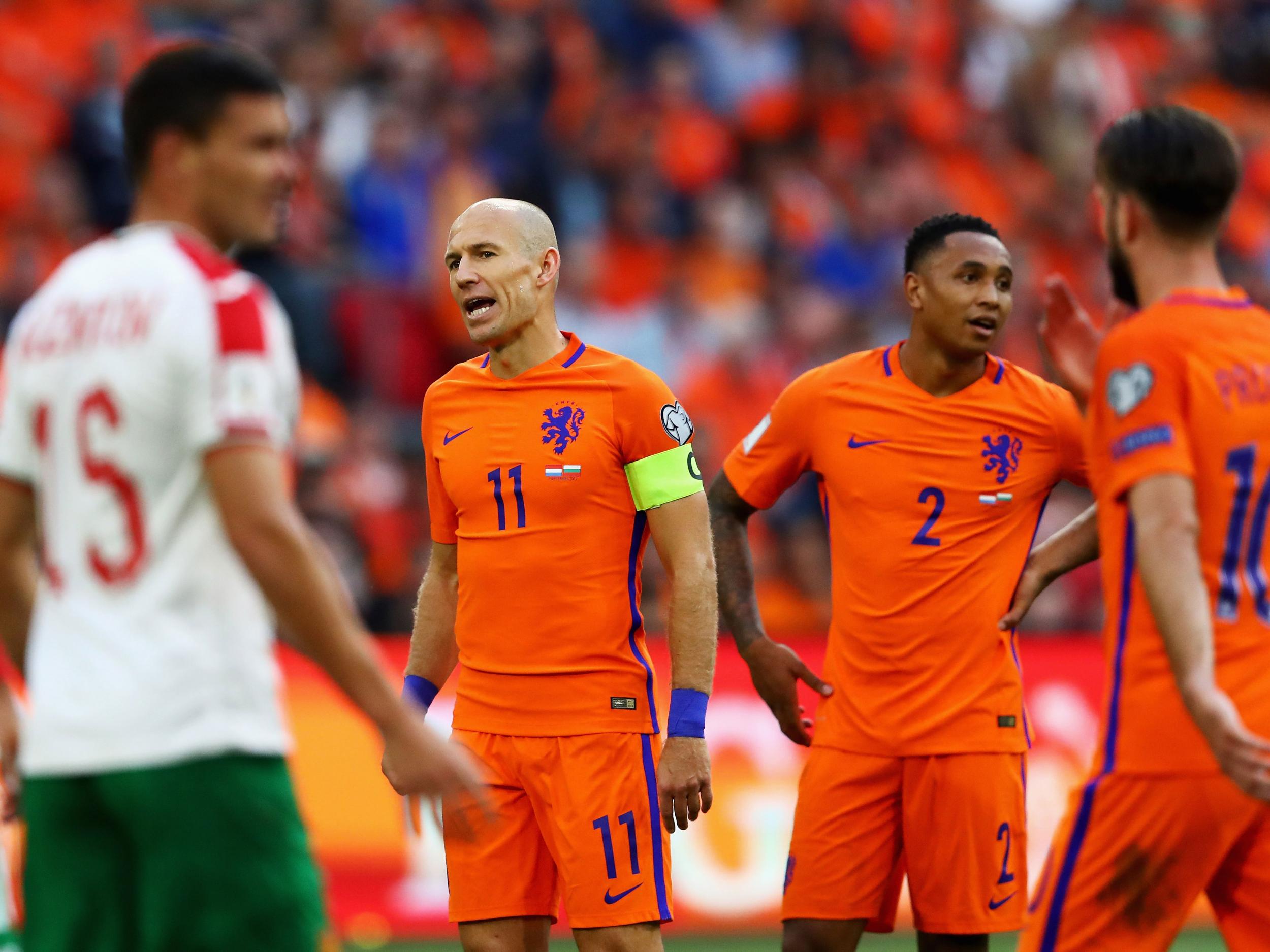Holland, the 'lost generation' and how total football totally consumed them
A country once at the forefront of innovative thinking in football has hit an intellectual brick wall

“They won't win 8-0,” Dick Advocaat said. “What a stupid question that is.” Sweden, however, did win 8-0 against Luxembourg and in doing so, all but ensured that Holland will not qualify for next summer’s World Cup. The Dutch now require a 7-0 victory over Sweden on Tuesday night in order to steal Group A’s play-off spot from their opponents. Perhaps Advocaat should dismiss that scoreline as ‘stupid’, too?
Once ‘the best team to never win the World Cup’, as the cliché went, Holland will not even be the best team sitting at home on the sofa next summer. It is the second successive major finals they have failed to qualify for and the second of the last five World Cups that they will not play a part in. Worse still, the Oranje’s failure is barely a surprise to the country’s media, supporters and the legions of tragic romantics around the world who follow them.
When the Dutch failed to reach the 2002 World Cup, in part because of a Roy Keane performance at Lansdowne Road to rival Turin in 1999, the shock hit the lowlands like a hammer. That a side starring several players from Ajax’s cherubic 1995 Champions League winners and guided by the mastermind behind that triumph Louis van Gaal had fell short in qualifying was barely believable. There will be no such surprise this time, however, because there is no such wealth of talent.
This failure and the failure to reach the 2016 European Championships has been widely put down to a ‘lost generation’ of players - those born from the mid-to-late 1980s and specifically from the crop of players that won the 2007 Under-21 Championships. Only 11 from that squad went on to win a senior cap and just one - the 30-year-old former Liverpool winger Ryan Babel - is in Advocaat’s squad for the Sweden game. Royston Drenthe, the player of the tournament, retired earlier this year and has embarked on a rap career.
Yet for all the blame pinned on those players, the group following up behind them - including those who combined with veterans like Robben, Wesley Sneijder and Robin van Persie to come third at the 2014 World Cup - have so far failed to bridge the generation gap.
Memphis Depay is capable of moments of brilliance but those moments have been seen too rarely. Vincent Janssen is in the process of rebuilding his confidence after a chastening year at Tottenham Hotspur, as is Jordy Clasie after struggling with Southampton. Marco van Ginkel is a long-standing member of Chelsea’s loan army, currently spending a second straight year at PSV Eindhoven, while in a slightly older bracket, injury has prevented Kevin Strootman from fully realising his potential.
Several of those players have swapped the Eredivisie for the Premier League in recent times and then left with their limitations exposed, which has not been ignored in the post-mortem of Dutch football. Among recruitment circles, there is a general distrust of any young wonder to emerge from the Dutch top-flight given previous experiences with players who struggled to adapt to their new surroundings. Why is this? One theory points out that the Eredivisie is a slower league, played at a more deliberate pace and thus totally out of tune with the cutting edge of modern football.
This is reflected in the dwindling number of Dutch managers working outside of the country. Once revered, Holland’s coaching is now bordering on irrelevance, with only Ronald Koeman at Everton and Peter Bosz at Borussia Dortmund managing in Europe’s five major leagues. Frank de Boer was sacked by Crystal Palace last month amid uncertainty that his patient, possession-based style of play suited neither his players or the Premier League. Likewise, Van Gaal was unceremoniously but correctly dismissed by Manchester United last year after fans became tired of his ‘philosophy’.
This was not always the way with Van Gaal, though. Back in 2014, during that run to the semi-finals, the best Dutch manager of his generation appeared to part with his safety-first principles, perhaps having learned during his failed qualifying campaign 13 years earlier that international football is not conducive towards grand, all-encompassing philosophies. Holland were a devastating counter-attacking side at times in Brazil, brutalising world champions Spain 5-1 in Salvador before eventually being stifled by Argentina in last four.
After Van Gaal’s departure for Old Trafford, this brand of play should have been maintained. Instead, Guus Hiddink came in. He was replaced by his assistant Danny Blind as 2016 Euros qualification campaign collapsed, and Blind himself was sacked after a dismal defeat to Bulgaria back in March.
Both men chose not to implement Van Gaal’s direct 2014 style, instead returning to the time-honoured, possession-based play that has informed Dutch coaching manuals for so long. With Advocaat drafted in to oversee the salvage operation, back for his third spell, it is hard not to conclude that Holland have hit an intellectual brick wall.
Hopes of rejuvenation have now moved towards another generation of young players born in the mid-to-late 1990s, including some of the young Ajax players that Bosz guided to the Europa League final last May. The current squad is 25.2 years old, younger than any that competed at the 2016 Euros, but recent history suggests it will take more than a handful of talented individuals to restore the Oranje to their historic level.
Some argue a country with a population less than half the size of Poland never had a right to compete with European and world football’s biggest nations on a consistent basis, but the Dutch made their size irrelevant through innovative, free-thinking football; by breaking, rather than reinforcing dogmas. Unfortunately, it may be some time before we see that Holland again.
Join our commenting forum
Join thought-provoking conversations, follow other Independent readers and see their replies
0Comments